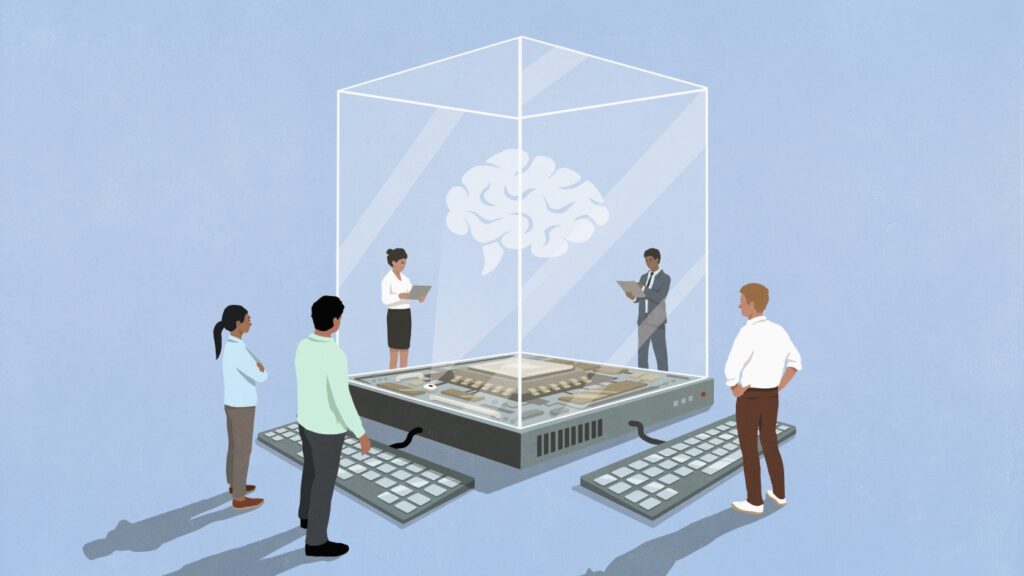The Unexpected Economics of AI: Understanding Jevons Paradox
Recently, a buzz swept through the tech world when DeepSeek, a Chinese AI company, unveiled a remarkable chatbot at a fraction of the cost compared to its American peers. This news sent American tech stocks tumbling. However, in a surprising twist, Microsoft CEO Satya Nadella took to social media, offering an optimistic take by referencing an obscure 160-year-old economic principle: Jevons Paradox.
"Jevons paradox strikes again!" he tweeted, invoking the idea that as AI technology becomes more efficient and better-priced, demand for it will skyrocket, transforming it into a commodified resource. This viewpoint, while historical, is seeing newfound relevance in today’s AI-dominated landscape.
What Exactly is Jevons Paradox?
To wrap our minds around Jevons Paradox, we need to roll back to the 1860s. England, worrying about depleting coal reserves, sparked the interest of economist William Stanley Jevons. While Victorian leaders thought that increasing efficiency in coal usage would reduce overall consumption, Jevons proposed a jarring counterpoint.
He argued that improvements in coal efficiency wouldn’t curb consumption; instead, they would likely lead to increased demand. More efficient technologies mean cheaper energy, which drives up demand—not down. Essentially, with every advance, people and industries would find new uses for coal, leading to even more consumption.
"As coal-powered tech gets more efficient, we actually consume more coal, not less," he contended.
The Modern Revival of Jevons Paradox
The concept was largely dormant until the 1970s oil crisis reignited discussions about energy efficiency. Economists began to explore the "rebound effect"—the idea that as devices become more efficient, their lower operating costs lead consumers to use them more often. For instance, as cars became more fuel-efficient, people might drive more or opt for second vehicles, thereby negating some environmental benefits.
Nonetheless, the magnitude of this rebound effect remains debated. Many expert analyses suggest that while the effect exists, it doesn’t completely nullify the advantages of increased efficiency. Despite partial rebound effects, consumers, in general, still benefit from a net reduction in energy use.
The Intersection of AI and Jevons Paradox
Now, as artificial intelligence gains momentum, the Jevons Paradox is being revisited in this new context. Nadella and others see parallels: if AI becomes cheaper and more efficient, the demand for AI applications might soar. However, just like the dynamics surrounding coal back in the day, the future of AI is uncertain. Will innovative applications continue to unfold? What will the competitive landscape look like?
Economists like Erik Brynjolfsson are also framing AI in terms of Jevons Paradox, considering its potential impact on job markets. He argues that increased productivity from AI won’t necessarily lead to mass layoffs; instead, it may ignite a burgeoning demand for human labor in various fields.
Brynjolfsson likens it to the airline industry’s evolution. With the introduction of jets, the cost of air travel dropped significantly—yet this did not decrease the need for pilots. In fact, it spurred a surge in air travel, necessitating more pilots, showcasing a potential happy scenario where improved efficiency leads to increased employment rather than job loss.
What Comes Next for AI and Employment?
However, it isn’t all sunshine and rainbows. If AI doesn’t translate into heightened productivity or if the demand doesn’t rise (due to factors like inelastic consumer habits), a Jevons-like scenario might not unfold in the workforce. Consider the agricultural sector; as technology vastly improved farming efficiency, the need for farm labor dropped because food demand didn’t balloon correspondingly.
As Jevons himself pointed out, technological improvements can initially displace workers, but often a broader demand for the products or services takes root, eventually expanding employment opportunities.
Final Thoughts
While the future of AI remains a mix of excitement and uncertainty, understanding concepts like the Jevons Paradox can help us navigate its implications for economics and employment. As we continue to witness breakthroughs in AI, the path forward is still being shaped.
The AI Buzz Hub team is excited to see where these breakthroughs take us. Want to stay in the loop on all things AI? Subscribe to our newsletter or share this article with your fellow enthusiasts.




